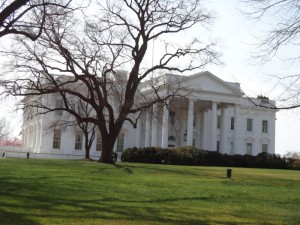
By Brad Crofford, Editor-in-chief
This past Monday marked President Barack Obama’s inauguration for his second term as president of the United States. As I sat and watched the event on my computer, I was surprised by Obama’s inaugural address. After all the drama surrounding the fiscal cliff and the tragic school shooting in Connecticut, I expected to hear an appeal to Republicans in Congress to work with his administration in a bipartisan fashion, or perhaps a veiled scolding to GOP obstructionism.
Instead, Obama delivered an ambitious speech that touched on numerous key issues, including controversial ones. His speech alludes to gun control, gay rights, immigration, and income inequality.
While I am excited about some of the subjects that the president brought up in his address, I worry that the agenda he has laid out in his inaugural address may be one that is simply impossible to implement over the course of the next four years. There are a few different scenarios I can imagine.
In the first scenario, Obama attempts to tackle all of these issues, from gun control to gay rights. Republicans in Congress resent this, and as a result, the partisan stalemate of the last four years continues. The nation lurches from one media-fueled crisis to another. This is a competitive scenario in which the midterm elections are critical. On the one hand, it is possible that Republicans will come out en masse to repudiate what they consider to be a radically progressive agenda, and they take over the Senate and keep the House. On the other hand, it is possible that progressives will be energized by Obama’s apparent plans to greatly advance their cause and will thus strongly support him in the election, leading the Democrats to make gains in Congress.
Regardless though of whichever party wins the midterm elections in this scenario, our nation loses. There is a second, better scenario.
Thus far, it seems when a divided Congress since 2010 has tried to do significant things like solve our spending addiction, it has ended up doing almost nothing. Instead, perhaps it should try to focus on small issues for a while. For the first year, let the government focus on less divisive issues. Even if it can only make small improvements, this is a building block for bipartisanship.
Of course, I recognize that this would be incredibly difficult to do politically. After tragedies such as that in Connecticut, there is so much emotion and commotion at the national level that the slow pace of reasoned reform seems impossible. Emboldened by the president’s inaugural address, it would also be difficult for proponents not to push for immediate reforms in such areas as immigration and gay rights.
I think a more measured pace with greater compromise would be well-advised. Since I have started college, it seems the nation has been continuously moving from one crisis to another, whether the BP oil spill, the economic crisis, the debt ceiling debates, mass shootings, Hurricane Sandy, the fiscal cliff, or countless others. Indeed, some of these, such as Hurricane Sandy, were beyond the government’s control and required immediate action. Others, however, seem to be the result of an irresponsible and unreasonable unwillingness to compromise on the part of one side or the other.
Obama was right when he seemed to advocate compromise in his address, saying “We cannot mistake absolutism for principle, or substitute spectacle for politics, or treat name-calling as reasoned debate. We must act, knowing that our work will be imperfect.”
I wish the best for President Obama and our governmental leaders over the next four years. I hope that in their eagerness to accomplish too much they do not inadvertently end up doing too little. Instead, I hope they do more by attempting less.